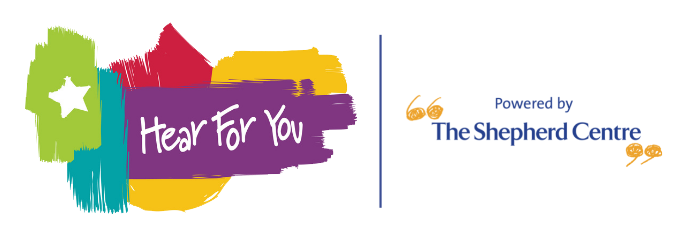Being a deaf teenager with access to social media is a huge plus. Social media makes it easier for us to connect with each other, without the need for hearing. We’re given a level playing field, with little to none disadvantage. This is because most people look at their social media channels with the sound turned off. Videos are almost always captioned, sometimes even automatically by the platform. We can comment, like, or private message each other – no hearing required. All of this creates an environment where deaf teens can communicate on an entirely level playing field with their peers.
However, social media is a double-edged sword. While it can connect you to the world and create a level playing field for everyone, it can also turn harsh quickly. As with any social interaction, it’s all fun and games until it’s not. As a teen, it’s important to be able to use social media as a tool while still disconnecting from it if it becomes unpleasant.
Let’s take a look at some tips to help you navigate social media safely.
Tips To Help You Navigate Social Media Safely
1. The Importance of Perception
Social media isn’t a real representation of anyone’s life, but that doesn’t mean it’s “fake” either. Social media is everyone posting the best possible things about their life, or the worst possible things, at all times: it’s a magnifier. That can make things seem much worse or much better than they actually are.
Real life isn’t as simple as social media often depict, and it’s very easy to feel as though everyone else is having more fun than you. Many photos are “photoshopped,” ie they’re digitally altered to look more appealing. The people that you see on social media may look very different in real life.
Teens today have grown up with filters being commonplace, you probably do it yourself, right! It’s easy to forget that these photos and posts aren’t really representative of reality. It’s important to resist comparing yourself to another person’s life for this reason: you don’t really know who they are or how they’re living.
2. Your Footprint in a Digital Age
Anything you put online is there forever, full stop. Nothing can be taken back, and it’s important for you to really think through anything that you post. You’re responsible and accountable for your actions.
That can feel burdensome: after all, you just want to use social media to connect with your friends and to have fun. But it’s worth it to put some thought into your posts and comments beforehand, and make sure that it’s something you want the entire world to see.
3. The “Keyboard Warrior”: How Anonymity Impacts Your Actions
Many people find it easy to be cruel or rude online. There’s a barrier in communication, the person is not standing in front of you and you’re not able to gauge their feelings behind the words. It’s easy to forget to be compassionate to someone if you can’t see their reactions, and it’s very easy to misread tone. That’s why people online can seem to be more reactionary and aggressive.
Before reacting to people, think about how you’d react if they were standing in front of you. Think about how your words might come across if someone didn’t already know your tone or humour, and try to interpret words in the most positive rather than least positive light.
Think about how you’d react if they were standing in front of you. Think about how your words might come across if someone didn’t already know your tone or humour.
4. Avoiding Excessive Screen Time
It’s easy to lose yourself in social media. You can spend an entire day on it if you aren’t careful, which is neither healthy or productive. To avoid excessive screen time, consider apps that limit the amount of social media you consume.
Have you heard about the effects of blue light? The blue light your phone’s screen emits can affect your sleep and throw your rhythm out. You can read more about the effects of blue light in this Harvard Health article.
Our brain also has a chemical effect when using social media. For example, dopamine is a chemical the brain produces that motivates our behaviour. Dopamine kicks in when we see a notification on social media but the brain recognises that it is not a a real interaction, so therefore the brain is not satisfied. This is why you can feel lonely even though you have over 5,000 friends. It’s said that social media keeps us hooked because we’re addicted to dopamine and we’re looking for the next rush that we think we can get out of social media interactions. In reality, real-life interactions would be more satisfying.
Building better habits will be important for your productivity as you move into university, training, or the workforce — and it’s also healthier in general, both mentally and socially.
5. Reaching Out For Help
If you find yourself experiencing issues with social media, such as online bullying, ask someone for help. Speak with peers, siblings, adults, counsellors, or teachers when something goes wrong. It’s never a bad thing to ask for help: often, others will be able to give you an external perspective to your issues.
Asking for help means you can get an external perspective to the issues you’re facing.
As a deaf teen, being on social media gives you the opportunity to interact easily with your peers. But you still need to approach it carefully: many teens find social media problematic for their mental health.
We offer workshops like no other! Come along to one of our programs … a place where young deaf or hard of hearing teenagers can hang out amongst other peers, have lots of fun and make lots of friends. Our mentors understand and remember well the challenges that a young deaf or hard of hearing teenager can experience. If you’re looking for help, we’re here for you.
Watch Holly’s Story About Cyber Bullying
Holly was bullied via social media in school as a teenager, and still carries the burden of this with her today. Now in her early 20s, she speaks about what you can do to ease the emotional burden that cyber bullying can cause.
Watch Holly’s Story Here
Thanks For Reading, Here Are Some Other Articles You Might be Interested In
I’m Bullied Because I’m Deaf – How To Handle a Bully At School




